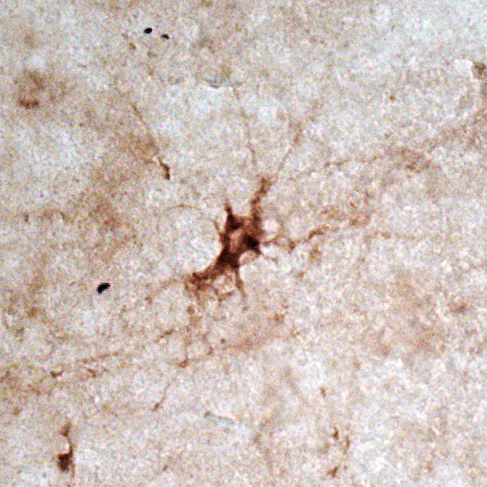Comparison of avian and mammalian hippocampus – stress sensitivity
The avian and mammalian hippocampal formations are homologous, and are therefore both derived from the same ancestral brain structure. Whereas a lot of attention has been paid to the role of the avian hippocampal formation in memory and navigation, very little attention has focused on its role in regulating the stress response.
In mammals and birds, the hippocampal formation provides a negative feedback onto the hypothalamic-pituitary-adrenal axis, which serves to bring the stress response back to baseline after being activated by psychological stressors. As part of this function, the hippocampal formation is very sensitive to stress hormones and other signalling molecules related to stress.
We know from the literature on chronic stress in models of depression that neurogenesis in the dentate gyrus in mammals is suppressed by chronic stress, and is upregulated again by treatments that relieve depressed symptoms. This is especially the case in the temporal pole of the hippocampus (ventral in rodents, anterior in primates).
We found that adult neurogenesis in the avian hippocampus is also suppressed by chronic stress and that the caudal pole of the avian hippocampus may correspond to the temporal pole in the mammalian hippocampus. We are continuing to explore the exact details of this phenomenon.
In addition, we are using the phenomenon of suppressed hippocampal neurogenesis as a marker of chronic stress and therefore chronic poor welfare in poultry and mice. Using this measure, we attempt to identify higher welfare rearing, handling, and housing conditions.
This work has been funded by Defra, BBSRC, UFAW and NC3Rs
Current lab members:
Dan Smith (UG)
Kelly-Anne Thompson (UG)
Izzy Sharpe (Research Assistant)
Jane Eastham (Research Assistant)
Elena Armstrong (PhD student)
Collaborators:

